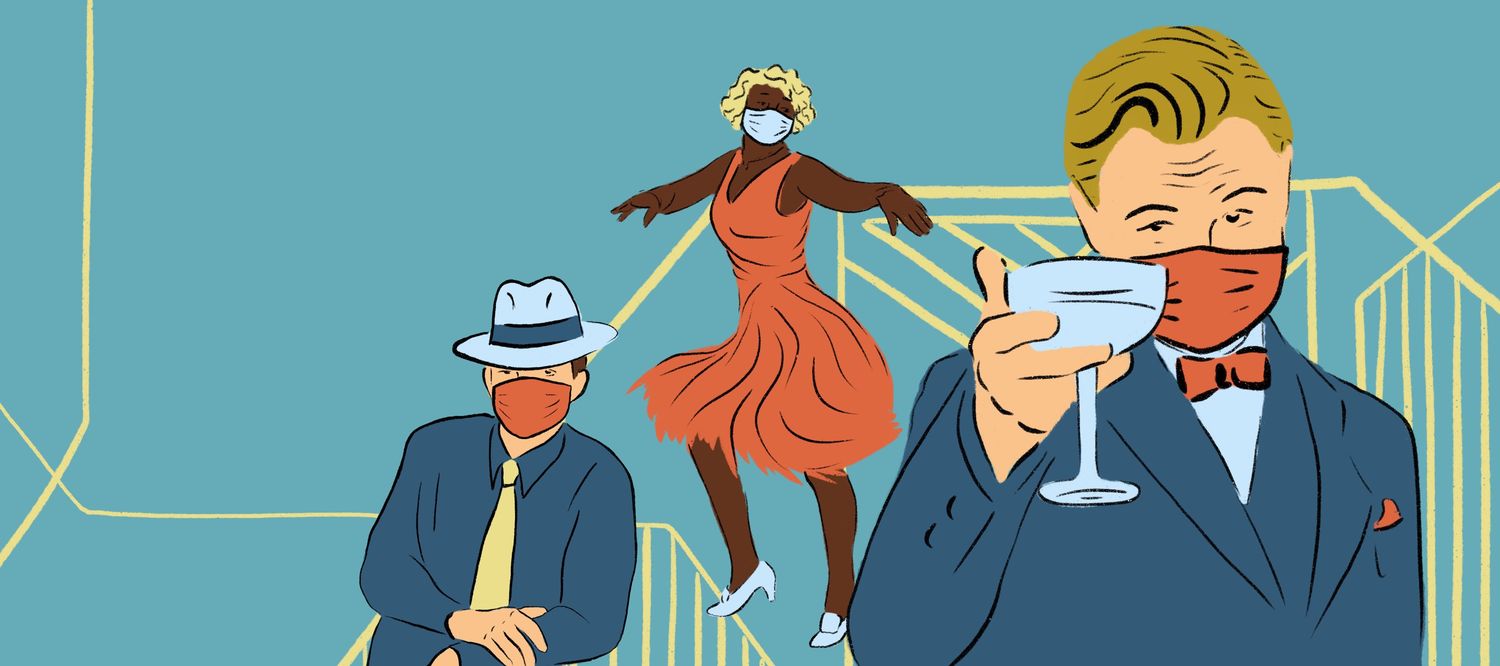In the midst of a crisis, it’s easy to become carried away with notions that life will forever be fundamentally different, and the practices and customs of a time that now seems a distant, hazy memory, will never return. While very few people would contend that life is going to bounce back to its 2019 state anytime soon, the sensationalist speculations and predictions of an unrecognisable society that punctuate op-ed sections and newspaper pages will likely prove inaccurate and fall short of the reality of the 2020s.
Covid-19 will undoubtedly cause some important and enduring shifts – lives have been tragically lost, formative years dramatically altered, and progress ground to a halt – but suggestions that handshakes may never return, casual sex and friendly hugging will be merely practices of a time lost, and the future of religion is online seem fundamentally at odds with collectivist human nature and the social experiences that we have all yearned for during our periods of isolation. Although the two decades are unlikely to be entirely analogous, the post-pandemic fresh slate of the 1920s does not seem dissimilar to the future of this coming decade, and we can certainly learn lessons from the ‘Roaring Twenties’.
“If social norms can be regained after a much longer period of crisis and isolation, is it really realistic to assume a 21st Century pandemic ... will bring an end to the customs of two years ago?”
The 1918 influenza pandemic killed more than 50 million people, eclipsing the death toll of the World War that had recently preceded it. The economic and political landscape of the 1920s was therefore vastly more novel and ‘unprecedented’ than the prospects of the 2020s. The end of President Trump and finale of the most arduous stages of the Brexit deal process are incomparable to a 20th Century world coming to terms with growing international co-operation, mass enfranchisement, and a new political order following one of the deadliest conflicts humanity had hitherto experienced. Yet what followed was frenzied sociability, impulsive cultural innovation, and the determination to regain the basic freedoms that had been lost since the start of the First World War. If social norms can be regained after a much longer period of crisis and isolation, is it really realistic to assume a 21st Century pandemic in a far more digitally connected world will bring an end to the customs of two years ago?
The Yale professor and social epidemiologist, Dr Nicholas Christakis, has claimed that ”plagues are not new to our species – they’re just new to us’, meaning it is reasonable to predict a decade of extensive social interaction and societal blossoming. Experts have suggested it’s entirely possible that late 2021 and 2022 will see the start of a period of economic dynamism, and those in the arts and fashion industries can supposedly expect years of hedonistic attitudes on the back of a desire to look and stay youthful, mirroring the 1920s.
Still, alongside this desire for liberation and cultural exploration lies the possibility of laissez-faire governance, and the desire among many people for limited bureaucracy and reduced political intervention after at least a year’s worth of the tightest restrictions on civil liberties during peacetime. The end of daily Downing Street dialogue, Boris Johnson’s bumbling briefings, and Professor Chris Whitty’s final “next slide please” will mark an undoubtedly cathartic moment.
However, the yearning for a post-pandemic life, free from stringent restrictions and government influence, must not come at the cost of failing to address the gaping issues that have plagued our society for many more years than Covid-19. The wealth inequalities that existed in the 1920s are not dissimilar to modern injustices and disparities. The World Inequality Database found that the top 0.1% of Brits saw their share of total national wealth double between 1984 and 2013, reaching 9%, and the richest 1% of the population own almost a quarter of UK wealth.
“... it is vital that the appetite for a comprehensive social welfare and redistribution project is not lost in the pursuit of post-pandemic pleasure.”
Meanwhile, more than 15 million people in the UK live in poverty, a rise of half a million since the start of the pandemic. In a decade that is likely to see people justifiably dancing away their troubles and seeking much-needed respite from state interference, it is vital that the appetite for a comprehensive social welfare and redistribution project is not lost in the pursuit of post-pandemic pleasure.
Amidst the ecstasy of the so-called “Roaring Twenties” of a hundred years ago, racial problems were also prevalent, and are still echoed in today’s society. The 1920s New York Harlem Renaissance was unfortunately not representative of the prevailing regressive attitudes among the majority of Americans and. If 2020 taught us anything, it’s that there is an abundance of room for education and improvement in racial equality and the status of minorities.
As vaccination programmes across the world allow an incremental return to normality, the jubilance and joyousness of being able to party, to gather, and to live freely again will mark an improvement to the lives of us all. It seems likely that there will be a culturally rich and socially vibrant repeat of the “Roaring Twenties.” Amongst this euphoria, we have a chance to shape the next decade and take advantage of the socially conscious and collectivist zeitgeist that may emerge. Let’s not hold back.


